Top 6 honey myths and facts: Unveiling the sweet truth
Honey, the golden, sticky treat made by bees, has been a part of our diets and home remedies for centuries. Its sweet flavor and health benefits have made it a favorite around the world. But with its popularity, some myths have started to spread. Let’s clear things up and explore the truth about this amazing natural product!
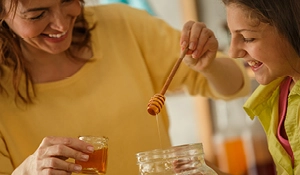
Myth 1: All honey is the same.
Busted: The reality is quite different. Honey’s flavor, color, and even nutritional value can vary a lot depending on the flowers where bees gather nectar. This variety makes every type of honey unique!
Tips for using honey:
- Manuka Honey: Enjoy a spoonful of Manuka honey each day to boost your immune system and support digestive health. Choose one with a high UMF (Unique Manuka Factor) rating for the best benefits.
- Buckwheat Honey: Take a teaspoon of buckwheat honey before bed to ease coughs and help you sleep better. Its dark color and rich flavor also pair perfectly with herbal teas or warm milk.
- Eucalyptus Honey: Combine eucalyptus honey with warm water and a squeeze of lemon to make a soothing drink for your throat. Its bold, aromatic taste is known for promoting respiratory health.
Different honeys can enhance your meals with unique flavors. Clover honey has a mild taste that works well in tea or baked goods, while the floral notes of acacia and wildflower honey are perfect for drizzling over fruits, oatmeal, or yogurt.
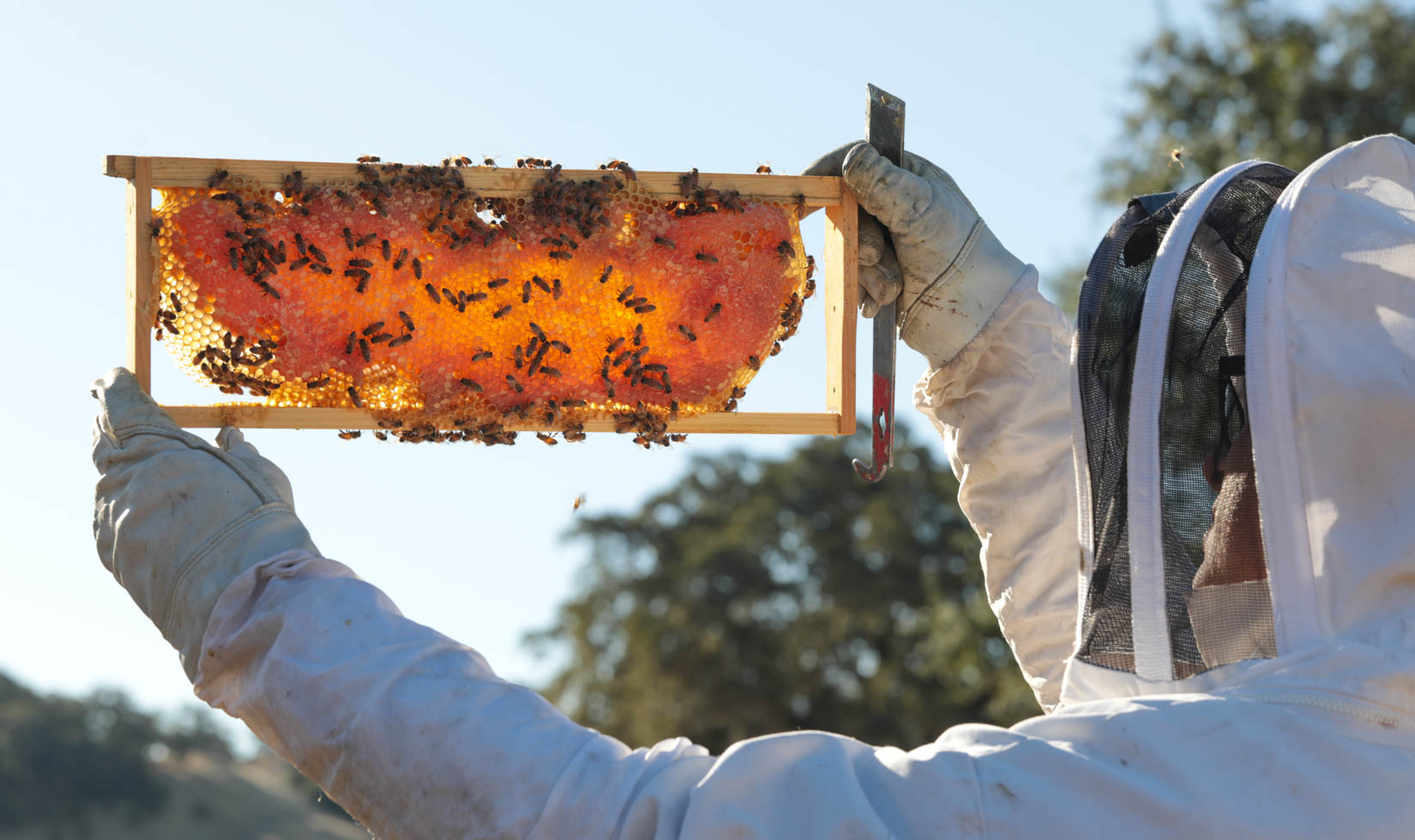
Myth 2: Honey never spoils.
Busted: Honey does have an impressively long shelf life thanks to its low moisture content and high acidity, but it’s not completely spoil-proof. If exposed to moisture, it can ferment and spoil. However, when kept in a sealed container and stored properly, honey can stay good for years—or even decades!
Tips for storing honey:
To keep your honey fresh and flavorful, follow these simple tips:
- Use the Right Container: Store honey in a tightly sealed glass or food-grade plastic container to keep out air and moisture.
- Choose the Right Spot: Keep honey at room temperature in a cool, dry place, away from direct sunlight and heat.
- Skip the Fridge: Avoid refrigerating honey, as it can cause crystallization. Room temperature is best to keep it smooth and liquid.
- Dry Containers Only: Make sure the container is dry before adding honey to prevent moisture, which can lead to fermentation or mold.
- Use Clean Utensils: Always use clean, dry spoons or honey dippers to avoid contamination.
- Separate Varieties: Store different types of honey separately to preserve their unique flavors and aromas.
- Fix Crystallized Honey: If your honey crystallizes, gently warm the container in a bowl of warm water to return it to its liquid state.
By following these simple steps, you can keep your honey fresh, flavorful, and nutritious for a long time!
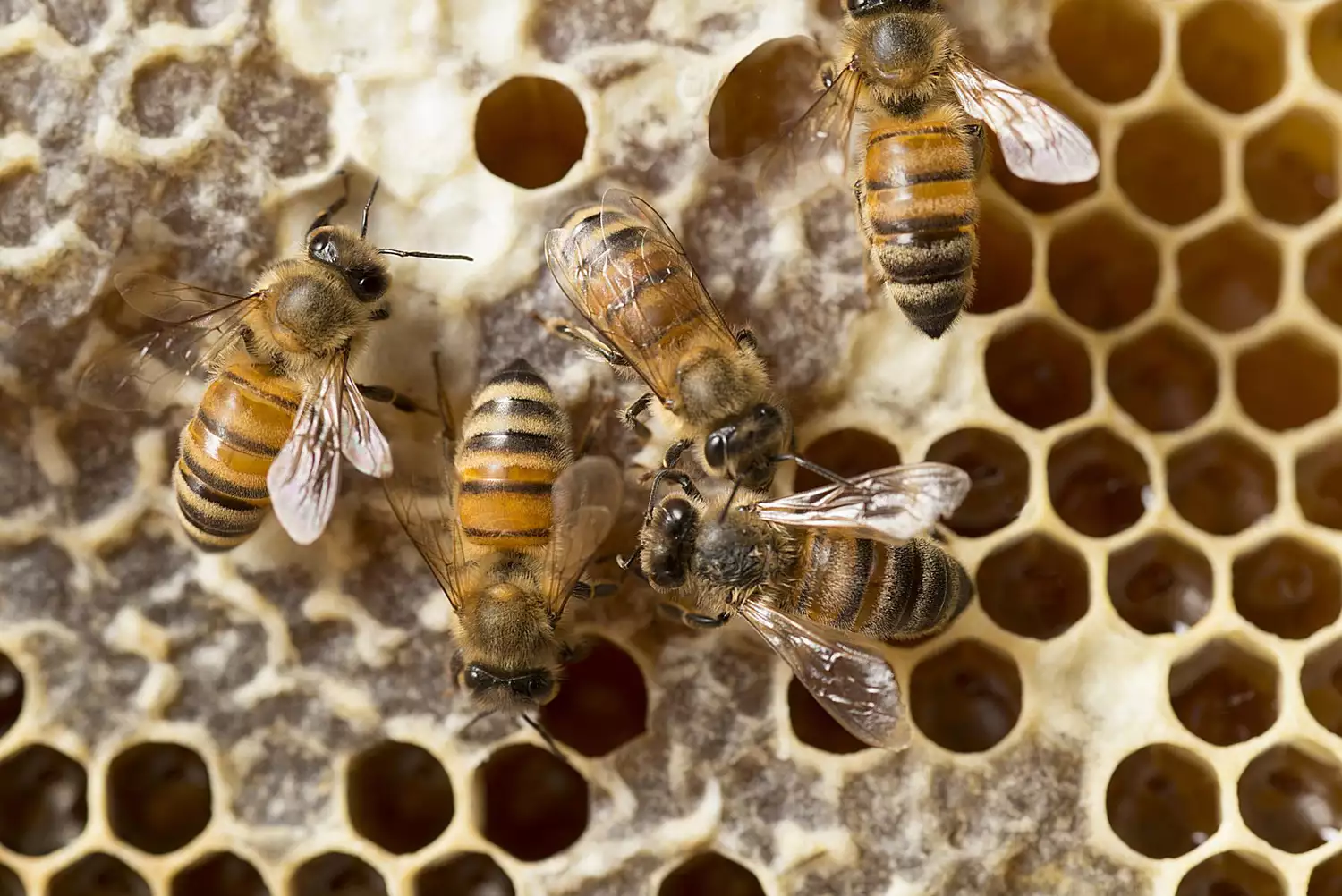
Myth 3: Honey is healthier than sugar.
Confirmed: Honey does have small amounts of vitamins, minerals, and antioxidants that aren’t in regular table sugar, making it a slightly healthier choice. However, it’s still a type of sugar and should be enjoyed in moderation. Eating too much honey can lead to health problems like weight gain and higher blood sugar levels.
Tips for getting a healthy amount of honey:
How much honey is okay to enjoy? It depends on your health goals, overall calorie needs, and diet.
The American Heart Association suggests limiting all added sugars, including honey, to no more than:
- 6 teaspoons (25 grams) per day for women.
- 9 teaspoons (38 grams) per day for men.
Remember, these limits apply to all added sugars in your diet, not just honey.
To incorporate honey into your diet without consuming too much sugar:
Watch Your Portions: Use teaspoons or tablespoons to measure honey and control how much you add to your meals or drinks.
Sweeten Smartly: Add a small amount of honey to tea, coffee, yogurt, or oatmeal to enhance the flavor without overloading on sweetness.
Pair with Natural Flavors: Mix honey with naturally sweet foods like fresh fruits or spices (e.g., cinnamon or vanilla) to enjoy sweetness while keeping added sugar low.
Ask for Advice: If you have specific dietary needs or health concerns, consult your doctor or a dietitian for personalized tips.
Moderation Matters: Honey can be part of a healthy diet, but keeping your overall sugar intake in check is essential for your health and well-being.
Related:
500 Million Bees Have Already Died In Brazil Within Three Months And The Future Of Our Food Is In Question
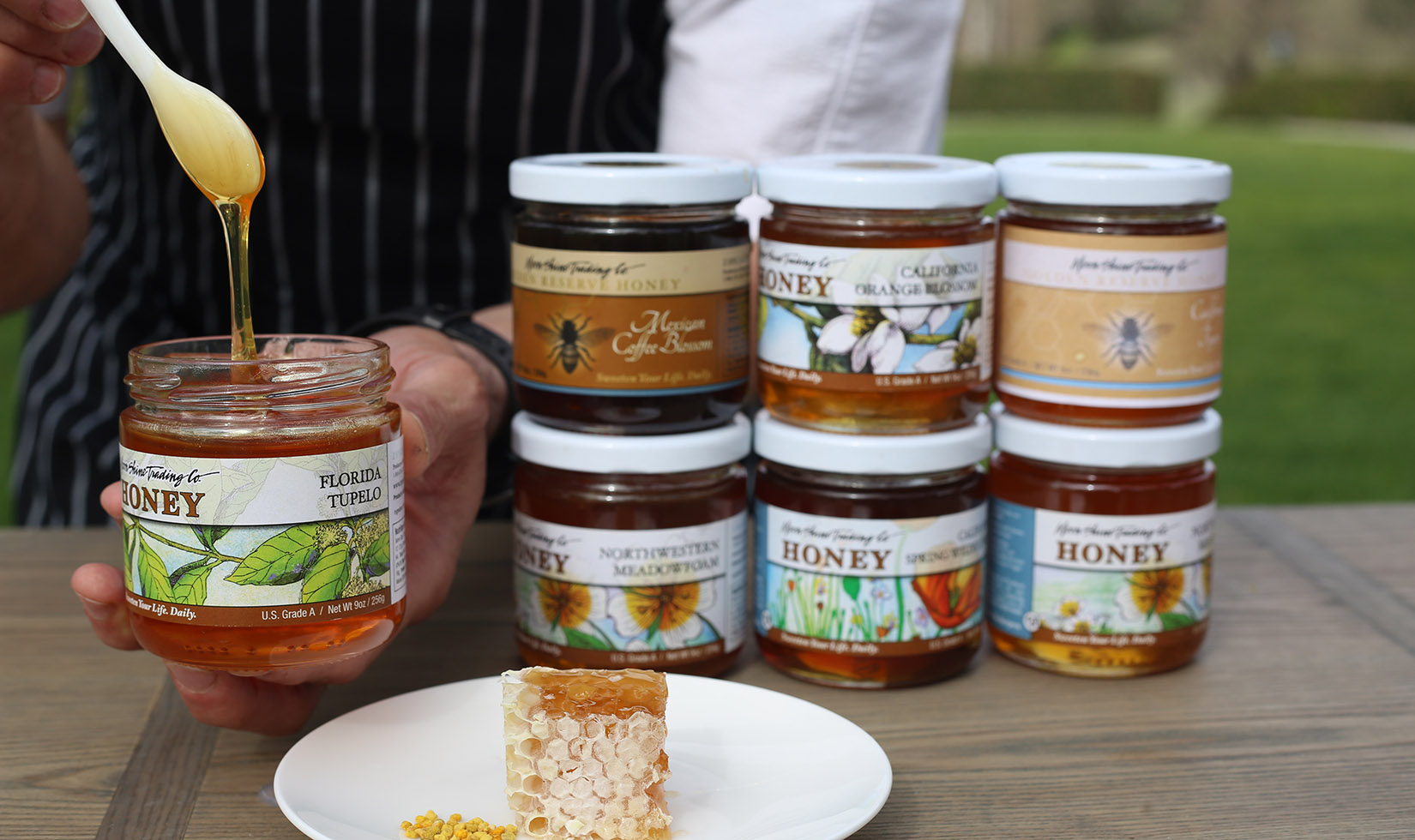
Myth 4: Honey can help with allergies.
Unconfirmed: Some people believe eating local honey can help with allergies because it contains pollen from nearby plants. However, there’s little scientific evidence to back this up. Most allergies are caused by windborne pollen, which isn’t usually found in honey. While it’s safe to enjoy, honey shouldn’t be used as a treatment for allergies.
Tip regarding honey and allergies:
Instead of relying on local honey for allergy relief, talk to your doctor about managing allergies with proven treatments. Your doctor can prescribe antihistamines, nasal sprays, or asthma medications to help with symptoms. They may also refer you to an allergy specialist, who can test for specific allergens. The results can help create a treatment plan, such as immunotherapy, to reduce your sensitivity to allergens over time.
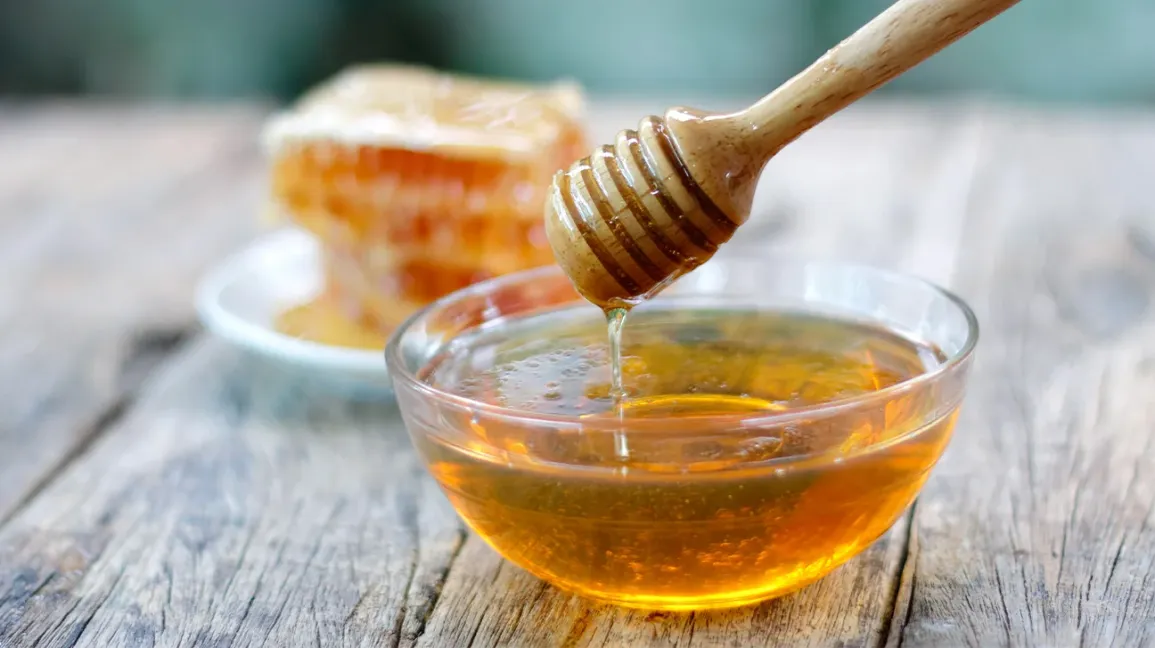
Myth 5: Honey is antibacterial and can treat wounds.
Instead of relying on local honey for allergy relief, talk to your doctor about managing allergies with proven treatments. Your doctor can prescribe antihistamines, nasal sprays, or asthma medications to help with symptoms. They may also refer you to an allergy specialist, who can test for specific allergens. The results can help create a treatment plan, such as immunotherapy, to reduce your sensitivity to allergens over time.
Tips regarding treating wounds with honey:
While honey does have antibacterial properties, it’s not recommended to treat injuries at home with regular honey. Food-grade honey isn’t sterile and could introduce bacteria into a wound. Medical-grade honey, which is sterilized, can be effective but is often expensive. The safest approach is to clean a wound with soap and water and use antibiotic ointment.
Honey might not be suitable for all wounds. In some cases, its high sugar content can slow down healing. It also shouldn’t replace antibiotics if there’s a high risk of infection. Deep or severe wounds and burns should be treated by a medical professional.
Additionally, some people may be allergic to components in honey, such as bee pollen. It’s important to check for any allergies and consult with a healthcare professional before using honey on wounds.
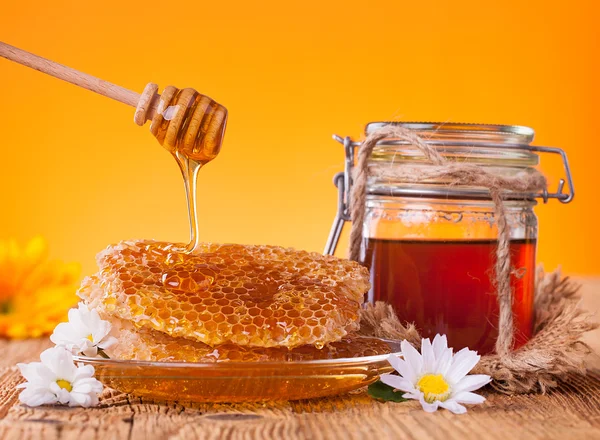
Myth 6: Honey is just for sweetening.
Busted: Honey is much more than just a sweetener. It can help soothe a cough, ease a sore throat, moisturize the skin, and even condition hair. In cooking, honey is used in marinades, dressings, and baking, adding a unique flavor that sugar can’t match.
Tips for eating honey:
Honey should not be given to babies under 1 year old. Their digestive systems are still developing, making them more at risk for bacteria like Clostridium botulinum, which can cause botulism. Additionally, honey’s thick texture could be a choking hazard for infants.
In conclusion, honey is much more than just a sweetener. It’s a natural product with a rich history, many uses, and some real health benefits. Like all foods, it’s best enjoyed in moderation and with attention to its source. By clearing up common honey myths, we can truly appreciate its value and make smarter choices about how to use it.

You may also like:
Stunning Images Of The Ancient Traditional Honey Hunters Of Nepal
Honey Q&A
Is honey better than sugar?
Yes, in moderation. Honey contains antioxidants, vitamins, and minerals, which make it different from table sugar. It also has a lower glycemic index, meaning it doesn’t cause a quick spike in blood sugar levels. However, it’s still high in calories, so it’s best to enjoy it in small amounts.
Can diabetics eat honey?
Diabetics should be cautious with honey. While it has a slightly lower glycemic index than sugar, it can still raise blood sugar levels. It’s important for diabetics to consult their primary care provider or endocrinologist before adding honey to their diet.
Are bees harmed in the production of honey?
Ethical beekeeping practices prioritize the health and safety of bees. Bees naturally produce more honey than they need, so beekeepers can harvest the excess without harming the colony. By supporting local, sustainable beekeepers, we can help protect these important pollinators and promote their well-being.
Does honey ever spoil?
Honey doesn’t spoil when stored properly. Its natural composition, low moisture, and acidic pH create an environment that bacteria and microorganisms can’t thrive in. To keep honey fresh for a long time, store it in a sealed container at room temperature.
Is raw honey safe?
Yes, for most adults, raw honey is safe and contains more antioxidants and nutrients than processed honey. However, honey of any kind should not be given to infants under 1 year old due to the risk of botulism and choking hazards.
Can honey help with allergies?
Possibly. Some believe that eating local honey can help your body adjust to local allergens, acting like a natural antihistamine. However, there is limited scientific evidence to fully support this idea.
What is the best way to store honey?
The best way to store honey is in a tightly sealed container at room temperature. Avoid refrigerating it, as this speeds up crystallization. If your honey crystallizes, simply warm it gently in a water bath to dissolve the crystals and return it to liquid form.
Honey, with its rich flavors and health benefits, remains a fascinating and useful natural product. It offers more nutritional value than white sugar and has long been recognized for its medicinal properties. To fully enjoy its benefits, it’s important to consume honey wisely and store it properly. Whether drizzled over yogurt, added to tea, or used as a remedy for a sore throat, honey’s versatility and health advantages make it a staple in households around the world.
Still have questions?
If you’re looking to treat health concerns with honey, your first step should be to visit your primary care provider. Your doctor can help create a smart, comprehensive plan that includes food, fitness, and treatments to support your wellness. If you don’t have a primary care physician or nurse practitioner, you can use our online search to find a provider near you who is accepting new patients.






